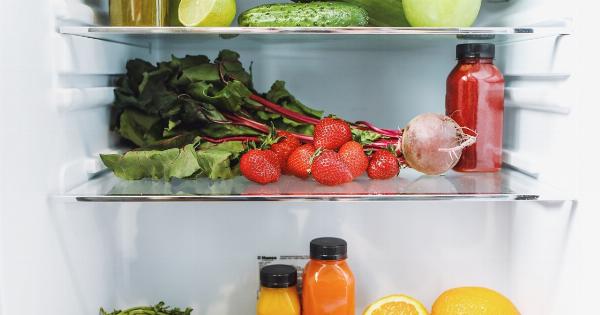Throwing away food is not only a waste of money, but it also harms the environment. According to the United Nations, one-third of all food produced globally goes to waste, which contributes to greenhouse gas emissions and depletes natural resources.
Thankfully, there are easy ways to extend the life of your food and reduce waste. Here are 11 simple tips:.
1. Learn How to Store Food Properly
Knowing how to store food is crucial, as it can significantly extend the life of your groceries. For example:.
- Keep potatoes, onions, and tomatoes in a cool, dry place, away from sunlight.
- Store fruits like bananas, avocados, and apples separately as they release ethylene gas, which can cause other fruits and vegetables to ripen and spoil quicker.
- Do not store bread in the fridge, as it can get stale faster. Instead, keep it at room temperature or freeze it for later use.
2. Use Your Freezer
Your freezer is your ally when it comes to reducing food waste. You can freeze leftover meals, vegetables, bread, and even herbs. Just make sure to label and date everything you freeze and consume it within a reasonable time frame.
3. Cook in Large Batches
Cooking in large batches is a great way to save time and money while also reducing waste. You can use leftovers as tomorrow’s lunch or dinner, or freeze them for later use.
4. Plan Your Meals
Planning your meals in advance can help you avoid buying unnecessary groceries, and it can also help you use up the ingredients you already have. Make a weekly or monthly meal plan and stick to it.
5. Check Expiration Dates
Expired products can be harmful, and they can also spoil faster. Always check the expiration dates of the groceries you buy and consume the ones that expire soonest first.
6. Invest in Reusable Containers
Single-use plastics are a significant contributor to environmental waste. Invest in reusable containers for your food storage needs, and you’ll save money in the long run while also reducing waste.
7. Use Mason Jars
Mason jars are versatile, easy to find, and perfect for storing food. You can use them to store nuts, grains, and even salads. They’re also microwave and dishwasher safe, making them convenient to use.
8. Keep Your Fridge Organized
A well-organized fridge can help you avoid wasting food. Keep the older products in front and the newer products in the back. Label your containers and keep similar products together.
9. Buy Only What You Need
Buying only what you need eliminates the possibility of wasted food. Before you go grocery shopping, make a list of the groceries you need, and stick to it.
Also, try to avoid buying in bulk if you know you won’t consume everything before they expire.
10. Learn How to Preserve Your Food
There are several ways to preserve your food and make it last longer, such as:.
- Canning fruits and vegetables
- Pickling vegetables
- Drying herbs and fruits
11. Donate Excess Food
If you have excess food that you can’t consume, consider donating it to food banks or charity programs. Many people do not have access to sufficient food, and your donation can make a significant impact on their lives.
By following these 11 simple tips, you can extend the life of your food and reduce waste, saving both money and the environment.





























